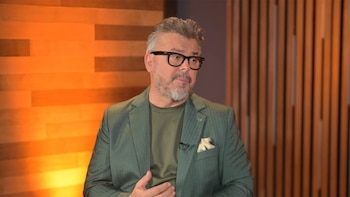In the summer of 1984, Los Angeles buzzed with the electricity of the Olympic Games. Even though I was just six years old, the city was so alive that my memory of Carl Lewis winning his historic fourth gold medal of the Games is as clear as day. From my neighborhood in the San Fernando Valley to South LA to San Pedro, every Angeleno community was captivated by the Games. That is what makes the Olympics so powerful - they are a celebration of unity in diversity and they leave legacies that last lifetimes.
A few years ago I came out to the world and I was, thankfully, accepted with an incredible amount of love from around the globe. I know that I made a difference, but I also know that I am just one person. The Olympics, however, represent 206 nations around the world.
So I was pleased to see when the International Olympic Committee – in many ways the ultimate governing body for global sport – adopted its "Olympic Agenda 2020" reforms; it changed its non-discrimination policy to include sexual orientation. The recommendation not only passed, but passed unanimously, making non-discrimination on sexual orientation part of the 6th Fundamental Principle in the Olympic Charter. Everyone involved in an Olympic or Paralympic Games has to abide by that Charter – so whether you are the Host City, one of the 206 national Olympic Committees, an athlete, a sports official, a sponsor or a journalist, you are obliged to respect the rights of our community.
The fact that the IOC actively seeks to promote equality showed the world that they stand on the right side of history, and they are ready to lead. Not even the UN’s Universal Declaration of Human Rights refers specifically to sexual orientation – yet. The IOC sent a clear message to athletes and would-be athletes that they believe in inclusion and acceptance.
The IOC’s action is notable because sport is one of the most beautiful platforms for progress. Sport physically brings people together in a way that promotes interaction with others from all walks of life and starts the conversations that lead to social change. When fans go to Staples Center and see me with my boyfriend, they have the opportunity see with their own eyes that we are not so different after all – that we are united through sports.
There really is no city in the world that better embodies the Olympic spirit and inclusion than Los Angeles. In LA, everyone is welcome. That is why I am enthusiastically supporting LA’s bid for the 2024 Olympic and Paralympics Games during Pride Month. We want the world to experience what we experience every day here – community, diversity, inclusion, creativity, culture and, of course, sunshine. And if we bring back the Games to LA we will roll out the red carpet for everyone, no matter where they come from, what they look like, or who they love.
Jason Collins is a retired professional NBA player born and raised in Los Angeles’ San Fernando Valley. In 2013, Collins announced he was gay, becoming the first openly gay athlete to play in any of the four major North American pro sports leagues.
The Olympic Charter’s 6th Fundamental Principle of Olympism: The enjoyment of the rights and freedoms set forth in this Olympic Charter shall be secured without discrimination of any kind, such as race, color, sex, sexual orientation, language, religion, political or other opinion, national or social origin, property, birth or other status.
For more information visit LA24.org.
LA 2024 can also be found on the following social media channels:
Twitter.com/LA2024
Facebook.com/LA2024
Instagram.com/LA2024
YouTube.com/LA2024
Snapchat.com/add/la2024
25 Years at #1: Your best source of news about the Olympics is www.aroundtherings.com, for subscribers only
Últimas Noticias
Utah’s Olympic venues an integral part of the equation as Salt Lake City seeks a Winter Games encore

IOC president tells Olympic Movement “we will again have safe and secure Olympic Games” in Beijing

Boxing’s place in the Olympics remains in peril as IOC still unhappy with the state of AIBA’s reform efforts

IOC president details Olympic community efforts to get Afghans out of danger after Taliban return to power

North Korea suspended by IOC for failing to participate in Tokyo though its athletes could still take part in Beijing 2022



